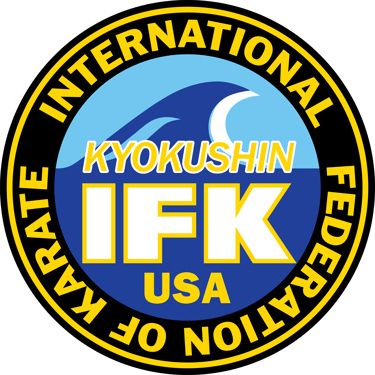What is Budo Karate?
🥋 Budo and the Spirit of Kyokushin Karate
Understanding the Martial Way
Budo (武道) translates as “The Martial Way.” Rooted in the ancient traditions of Japanese warriors, Budo is not simply about combat, it is a lifelong path of self-discipline, spiritual refinement, and moral character.
The word consists of:
Bu (武): martial or warrior
Dō (道): way or path
Budo developed from Bushidō (武士道), the ethical code of the samurai, and later absorbed philosophical elements from Zen Buddhism and Taoism, both of which emphasize harmony, humility, and inner awareness. Karate, when practiced as Budo, becomes more than physical training, it becomes a way of life. This philosophy is reflected in Kyokushin’s traditions, from the dojo environment to the manner of dress, etiquette, and mindset.
A Deeper Purpose
“Budo did not originate in a peaceful atmosphere. It was necessary to protect one’s life... It was the warrior’s duty to develop spirit...”
— Gogen Yamaguchi
Modern practitioners may not face the same life-and-death struggles as the samurai, but the mental and spiritual challenges remain. According to Yamaguchi:
“Now, karate is the battle against one’s self... not to defeat others. This solitary fight is to know one’s own spirit and the desire to the naught that is superior to the limitation of the body.”
— Gogen Yamaguchi
A Philosophy of Character and Purpose
The practice of Budo is not about violence or victory for its own sake. It is about confronting challenges, embracing humility, and developing the virtues that extend far beyond the dojo. Courtesy, perseverance, patience, and respect for others are all essential to the Budo mindset.
Unlike modern sport karate, which often focuses on medals and rankings, Budo Karate is deeply rooted in tradition and self-cultivation. Every punch, kick, and kata becomes a means of self-discipline. Winning is secondary to developing character.
The Kyokushin Philosophy: Budo in Action
Masutatsu Oyama created Kyokushin Karate as a style grounded in reality and rigorous training — but more importantly, as an expression of Budo. He embraced the spirit of Budo throughout his life. His legendary mountain training, rigorous discipline, and commitment to testing his skills in the real world were all grounded in this deeper philosophy. He sought to create karateka who were not just strong, but strong in spirit, humble in heart, and forged by effort.
"The heart of our karate is real fighting. There can be no proof without real fighting. Without proof, there is no trust. Without trust, there is no respect. This is a definition in the world of martial arts." - Sosai Mas Oyama
For Sosai Oyama, Kyokushin was never just a fighting system — it was Budo Karate: the path of truth through discipline, endurance, and honor.
“For a long time, I have emphasized that karate is Budo. If Budo is removed from karate, it is nothing more than sport karate, show karate, or even fashion karate... Karate that has discarded Budo has no substance.” - Mas Oyama
Oyama believed that Karate must transcend competition. Victory and defeat are incidental, the true goal is self-mastery.
“Karate is the most Zen-like of all the martial arts... It transcends the idea of winning and losing to become a way of thinking and living in accordance with the way of Heaven.” - Mas Oyama
This spirit is also present in Kyokushin’s name itself, Kyokushin (極真) means “Ultimate Truth.” The truth found through perseverance, sacrifice, and self-discipline.
Budo in the Dojo
The Kyokushin dojo is not a gym. It is a space for personal transformation. The Dōjō (道場), literally “place of the Way”, is respected as sacred ground. Students bow before entering. They meditate (mokuso) to clear the mind. Training uniforms (dōgi) are kept clean. Belts (obi) are never washed, they represent effort, sweat, and history.
“To repair a torn uniform is no disgrace, but to wear a torn or dirty one is.” - Mas Oyama
Karate, Budo, and the “Empty Hand”
Karate (空手) means “Empty Hand”, but this wasn’t always the case. Originally written as 唐手 (China Hand), it reflected Chinese martial influence. Later, masters like Chomo Hanashiro and Gichin Funakoshi advocated for a change to 空手 to express a deeper meaning:
“Kara (空) symbolizes not only the use of empty hands but also the emptying of heart and mind of desire and vanity.”
— Gichin Funakoshi
Why It Matters
Kyokushin embraces the Budo path. This does not exclude competition, but it places competition in its proper context: as a tool for growth, not a measure of worth.
To understand Kyokushin, one must understand Budo. We do not train merely to win, we train to become stronger, more resilient, more honorable human beings.
"Although it is important to study and train for skill in techniques, for the man who wishes to truly accomplish the way of budo, it is important to make his whole life in training and therefore not aiming for skill and strength alone, but also for spiritual attainment." - Mas Oyama
Budo in Today’s World
In an age of instant gratification, Budo reminds us of the value of patience, sacrifice, and quiet strength. It teaches us that real growth comes from struggle, and that true mastery is never just about defeating others, but about conquering ourselves.
This is the spirit at the heart of Kyokushin Karate. This is the path we walk.
TRAINING
Join us for workshops and seminars conducted by skilled professionals and experienced educators from across the United States and internationally. USA-IFK prides itself on its no-politics approach. Click the appropriate button above for more information.
© 2025. All rights reserved.
